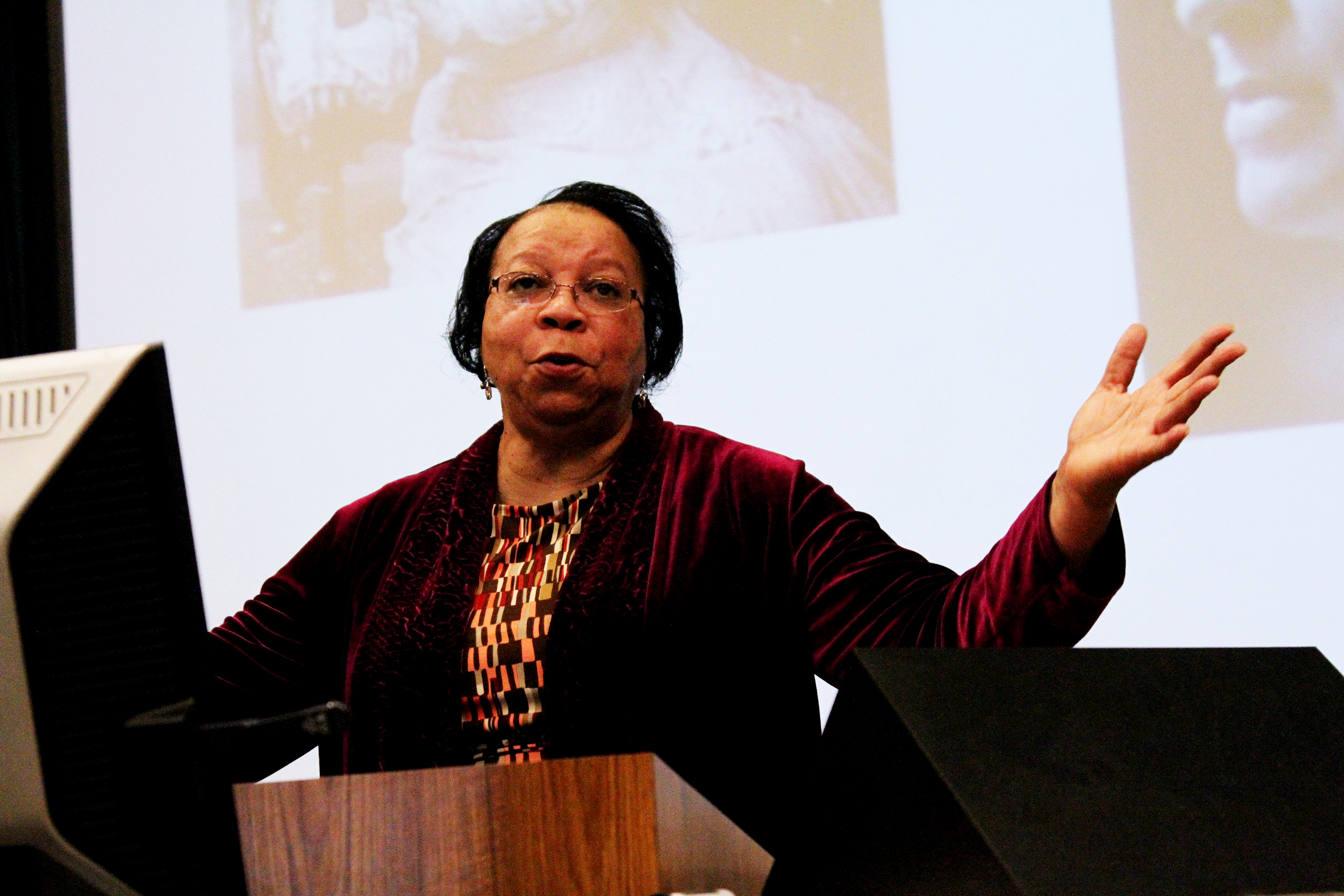

How about Rosa Parks?
They’re all trailblazers in the civil rights movement, according to University of Houston history professor Dr. Linda Reed, who presented a lecture last night at Bennett Auditorium.
By Josh Day
Reporter
Do the names Bessie Coleman, Constance Baker Motley, Maggie Lena Walker and Mary Church Terrell ring a bell?
How about Rosa Parks?
They’re all trailblazers in the civil rights movement, according to University of Houston history professor Dr. Linda Reed, who presented a lecture last night at Bennett Auditorium.
“The women of civil rights are like drops in a river working toward a common goal,” said Reed in her speech, “Women Movers and Shakers in the Civil Rights Movement.”
The speech was part of a series of lectures from the department of history in celebration of Black History Month.
The civil rights movement was not a single moment in history or the work of an individual person, according to Reed.
Her main idea was that each person pushes toward a common goal like drops of water moving in a river.
“If you could turn every one of these people into water or blood, you would see a river pushing hard towards the things to come.”
The idea to explain the connection between key women in the area of civil rights came from the book “There is a River” by Vincent Harding.
“They made a way for themselves,” Reed said. “They understood their situation and what they wanted.”
In the speech, Reed drew attention to the lives and influence of key women in the history of civil rights. She described the well-known civil rights advocates such as Rosa Parks, but also discussed lesser known women such as Bessie Coleman, the first female African-American pilot, and Constance Baker Motley, who became the first African-American woman to argue a case before the Supreme Court during Brown v. Board of Education.
Reed said all of the women were united in their desire for advocacy.
“These were people from all walks of life, who wanted to help people,” Reed said.
She also discussed Maggie Lena Walker, the first female bank president. Reed described Walker’s views on advocacy with a quote from Walker: “We can help ourselves by helping ourselves.”
She also described the lifelong fight for equality by Mary Church Terrell, who protested the segregation of restaurants and theaters in a picket line at the age of 80.
“To this date, we have many great works written on all of these women but not one on Mary Church Terrell,” Reed said.
While these women came from different walks of life, Reed said she believes the connections between the women in her speech go deeper than the history books describe.
She presented pictures documenting informal meetings between some of the women as proof they knew each other personally.
“My theory was that a lot of the people knew each other. They had the same views and fought for the same causes,” Reed said.
Reed also said she had some direct connections to the women in her speech. She said she once met Rosa Parks at a convention, called “Trailblazers and Torchbearers”.
“She was always a humble, humble person and very encouraging to young people,” Reed said.
In 1997, Reed met Daisy Bates, one of the Little Rock 9, at the request of the Clinton administration. She was invited to give a talk at the luncheon in her honor.
“She said she liked the speech, but then again, she recently had a stroke,” Reed said.
Reed said her interest in this topic stems from her work on her dissertation.
“When I got ready to do a dissertation I wanted to do work on women, African-American women. So it was a personal goal,” Reed said.
She initiallty tried to focus writing on one person in the civil rights movement but said it was difficult because she wanted to mention the other women involved.
“Lines are intertwined, you can focus on one line, one set of questions and it leads to other lines, other common interests,” she said.
Some of the students in attendance said they felt Reed’s speech informed them of a larger picture of civil rights.
“It opened my eyes to the things that I didn’t know about these women and to ones that aren’t very well known,” said Highlands Ranch junior Nikki Wells.
“You hear about Martin Luther King, but it’s mind-blowing to think about the enormous amount of influence that these women had that you’ve never heard about,” Wells said.
Ft. Smith, Ark. senior Brittany Hudson said the speech’s message was worthwhile.
“It showed me more about the women of the civil rights that I don’t usually hear about, this is really something that people could benefit from, beyond extra credit,” Hudson said.





